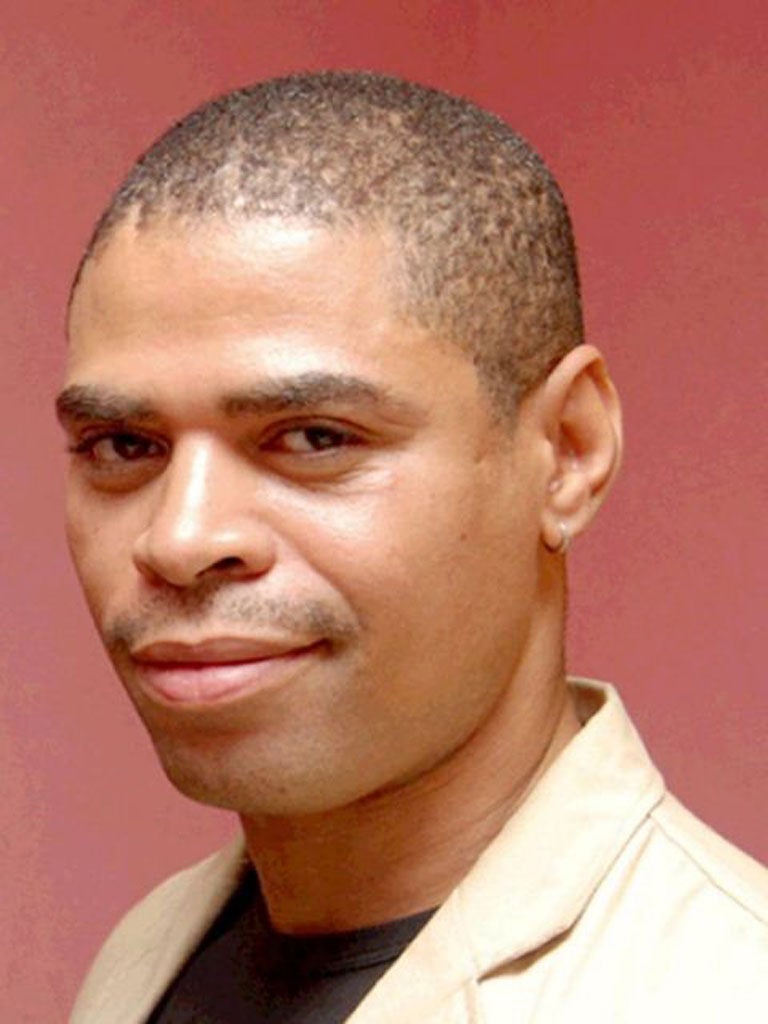Police restraint 'more than minimally' contributed to Sean Rigg's death in custody, inquest jury finds

The police were criticised by an inquest jury today for using an “unsuitable level of force” before the death in custody of a schizophrenic.
Sean Rigg, a physically fit 40-year-old musician, was being held in the back of a police van at Brixton police station in south London when he died of cardiac arrest on August 21 2008.
An inquest jury found that officers used "unsuitable" force after arresting Mr Rigg for attacking passers-by and police officers in Balham, south London.
Reading the jury's narrative verdict today after the seven-week process at Inner London South Coroner's Court, coroner Andrew Harris said: "The level of force used on Sean Rigg whilst he was restrained in the prone position at the Weir estate was unsuitable.
"In addition, there was an absence of leadership.
"This led to a failure to take appropriate control of the situation."
The jury found that police restrained Mr Rigg in the "prone position" for eight minutes while he was being arrested, a length of time that "more than minimally" contributed to his death.
Reading the verdict, Dr Harris said: "Sean Rigg's health continued to decline during the journey in the cage of a police van back to the police station.
"Sean Rigg's mental health was already, and continued to be, very poor.
"As Sean Rigg was brought into the cage at Brixton police station he was extremely unwell and was not fully concious.
"It was reasonable to expect the police to recognise that there was cause for concern regarding Sean's mental and physical health."
South London and Maudsley NHS Trust (SLAM) were also criticised for failing to organise a mental health assessment for Mr Rigg in the period leading up to his death and for the crisis plans that were in place to deal with him.
SLAM also failed to ensure Mr Rigg took his medication in the two months before his death.
The absence of a mental health assessment "more than minimally contributed" to his death, the jury found.
In the weeks prior to his death, Mr Rigg was displaying "clear relapse indicators" as was not taking his medication and SLAM's response to these was inadequate, the jury found.
The mental health hostel in Fairmount Road, Brixton, where Mr Rigg was living was praised for the "good treatment and care" it provided to him there.
But it had failed to have adequate crises plans in place and should have been more "proactive" in communicating with his family and clinical team, the jury found.
Mr Rigg, described by his family as "boisterous, funny and talented", had a 20-year history of mental illness which was diagnosed following a bad acid trip and he was a black belt in karate.
The jury heard that in the hours leading up to his arrest he had destroyed a gazebo in the garden of the Fairmount Road hostel.
Mr Rigg then left his place of residence and was seen practising martial arts moves before becoming involved in a series of altercations with passers-by.
The inquest heard he had a history of problems with the law, both in the UK and abroad.
The inquest heard that staff at the Fairmount Road hostel repeatedly called police throughout the afternoon of August 21 to alert them that Mr Rigg was behaving violently.
Staff were so scared they locked themselves in an office, but the jury heard that police did not turn up until 8.11pm.
By this time, Mr Rigg had left the hostel, become involved in several altercations and been arrested and taken to Brixton police station.
Giving evidence at the inquest, one of the two officers who attended the hostel denied lying to the jury about a witness statement he gave, saying he had arrived at the hostel at 7.40.
Pc John Rees was shown CCTV footage showing that he had in fact arrived at the hostel at 8.11pm, but the officer denied that he was trying to cover up "inadequacies" in the police's response.
After he became involved in the altercations, police chased Mr Rigg into the Weir estate in Balham and arrested him there before taking him into custody.
Inspector Andrew Dunn, the section sergeant in charge of the group of officers who were guarding Mr Rigg, acknowledged to the inquest that he did not marry together pieces of information that would have shown the detainee was at risk.
Despite having seen a number of computer-aided dispatches (CADs) which referred to Mr Rigg by name, and that he had mental health issues, Mr Dunn did not treat him with extra care.
But asked by a member of the jury if he would change the way he acted if he could go back, he said: "The circumstances that were there at the time, I have to say I would have done exactly the same."
Today the jury found police had failed to identify that Mr Rigg was a "vulnerable person" at the point of arrest.
Mr Rigg's sister, Marcia Rigg-Samuel, 48, said in a statement read outside court: "We have sat through a long and painful seven weeks reliving the final days and hours of Sean's precious life."
She said the family's pain had been compounded by the evidence police gave during the hearing.
She added: "Sean was a fit and healthy man who died less than an hour after being picked up by the police. Nothing will bring him back but we want to know that justice will be done. Those responsible must be held to account for Sean's death."
PA
Subscribe to Independent Premium to bookmark this article
Want to bookmark your favourite articles and stories to read or reference later? Start your Independent Premium subscription today.
